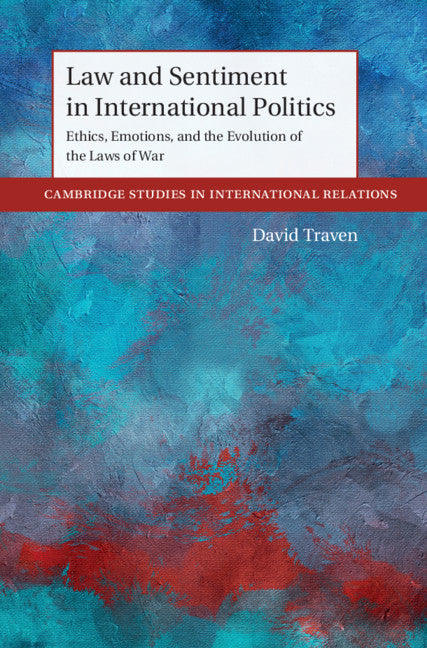Freshly Printed - allow 8 days lead
Couldn't load pickup availability
Law and Sentiment in International Politics
Ethics, Emotions, and the Evolution of the Laws of War
Traven argues that universal moral beliefs and emotions shaped the evolution of international laws that protect civilians in war.
David Traven (Author)
9781108845007, Cambridge University Press
Hardback, published 1 July 2021
300 pages
23.5 x 15.8 x 2 cm, 0.62 kg
'Why do the laws of armed conflict in ancient China, medieval Islamic states, and modern Western society contain similar prohibitions against the deliberate killing of civilians? In this profound and provocative book, David Traven traces these similarities to a common moral psychology existing in human beings across space and time. Unfortunately, these moral sentiments create inherently fragile rules, often permitting 'unintentional' killing, even on a massive scale.' Scott D. Sagan, Caroline S.G. Munro Professor of Political Science, Stanford University
Drawing on recent research in moral psychology and neuroscience, this book argues that universal moral beliefs and emotions shaped the evolution of the laws of war, and in particular laws that protect civilians. It argues that civilian protection norms are not just a figment of the modern West, but that these norms were embryonic in earlier societies and civilizations, including Ancient China, early Islam, and medieval Europe. However, despite their ubiquity, this book argues that civilian protection rules are inherently fragile, and that their fragility lies not just in failures of compliance, but also in how moral emotions shaped the design of the law. The same beliefs and emotions that lead people to judge that it is wrong to intentionally target civilians can paradoxically constitute the basis for excusing states for incidental civilian casualties, or collateral damage. To make the laws of war work better for civilians, this book argues that we need to change how we think about the ethics of killing in war.
Part I. A Theory of Moral Psychology and International Norms: 1. Introduction: the laws of war and the puzzle of norm emergence
2. Mapping the mind: moral psychology and international humanitarian law
Part II. The Universal Grammar of the Laws of War: China, Islam, and the West: 3. Taming the sovereign: state formation and the ethics of war in ancient China
4. War and peace in Islamic law: cultural evolution and the ethics of war in early Islam
5. Moral emotions and natural law: the peace of god, catholic just war theory, and the European enlightenment
Part III. Moral Sentiments and the Development of International Humanitarian Law: 6. Humanizing hell: the Hague peace conferences and the second world war, 1899-1945
7. A moral revolution in the history of humankind: the Geneva conventions and the politics of international humanitarian law, 1945-1977
8. Conclusion: moral emotions, permissive effects, and the rationalization of IHL.
Subject Areas: International law [LB], International relations [JPS]


